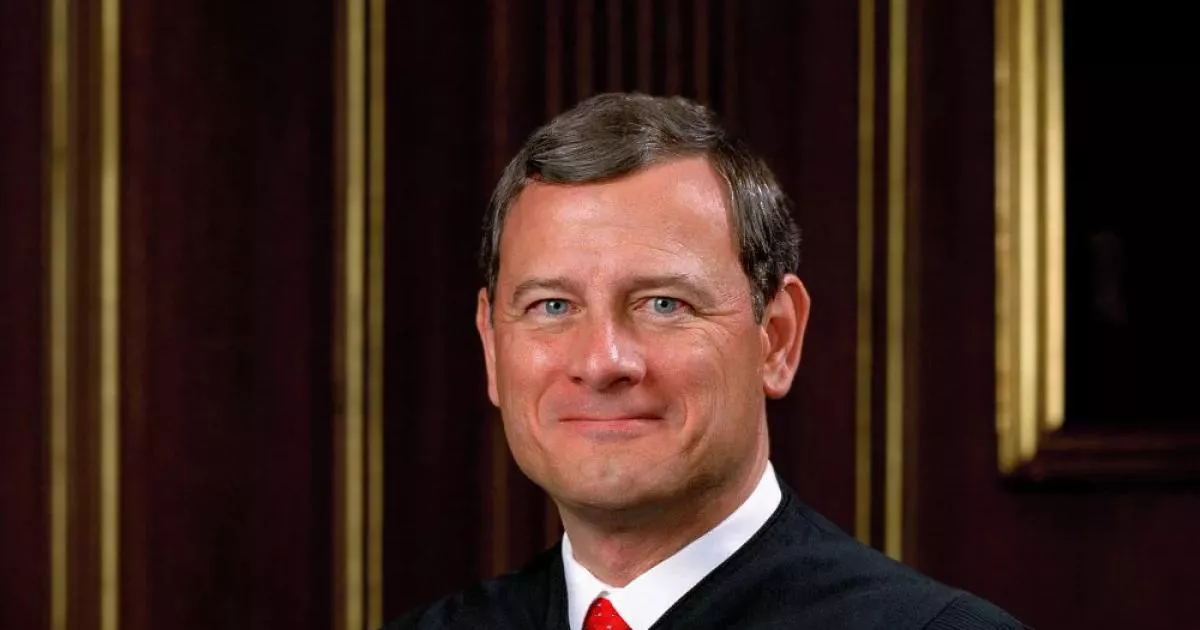A closer look at the most debated and controversial moments involving John Roberts.
John Roberts is the 17th Chief Justice of the United States, serving since 2005. Often described as a moderate conservative and an institutionalist, he is considered by some to be a swing vote on the Supreme Court. His tenure has coincided with a shift towards conservative jurisprudence, with Roberts authoring several key opinions. Although considered moderate, he has been pivotal in decisions that have shaped the legal landscape of the US.
1965: Work on the Voting Rights Act of 1965
In his role as an assistant to the attorney general, John Roberts concentrated on the scope of the Voting Rights Act of 1965, particularly Sections 2 and 5, which he and other Reagan lawyers believed unnecessarily intruded on state regulations.
June 27, 1990: Supreme Court decision in Metro Broadcasting, Inc. v. FCC
On June 27, 1990, the Supreme Court sided with the FCC in Metro Broadcasting, Inc. v. FCC, disagreeing with John Roberts' argument that racial preferences by the Federal Communications Commission were unconstitutional.
June 28, 2012: Wrote majority opinion in National Federation of Independent Business v. Sebelius
On June 28, 2012, Roberts wrote the majority opinion in National Federation of Independent Business v. Sebelius, which upheld a key component of the Patient Protection and Affordable Care Act by a 5–4 vote.
2013: Voted with majority in Shelby County v. Holder
In 2013, as chief justice, Roberts voted with the majority in the decision of Shelby County v. Holder, which struck down voting rights protections provided by the Voting Rights Act.
2016: Voted to uphold abortion restriction in Whole Woman's Health v. Hellerstedt
In 2016, Roberts voted to uphold the law in Whole Woman's Health v. Hellerstedt, a case about abortion restrictions.
November 2018: Response to President Trump's comments on "Obama judge"
In November 2018, John Roberts responded to President Donald Trump's comment about an "Obama judge", stating that there are no Obama, Trump, Bush, or Clinton judges.
2018: Joined liberal justices in declining to hear Planned Parenthood case
In 2018, John Roberts and Justice Kavanaugh joined four more liberal justices in declining to hear a case brought by Louisiana and Kansas to deny Medicaid funding to Planned Parenthood. This action let stand lower court rulings in Planned Parenthood's favor.
2019: Joined liberal justices in blocking Louisiana abortion restriction
In 2019, Roberts joined with liberal justices in a 5–4 decision to temporarily block a Louisiana abortion restriction.
2020: Struck down Louisiana abortion law in June Medical Services, LLC v. Russo
In 2020, Roberts joined the majority in striking down a Louisiana abortion law in June Medical Services, LLC v. Russo. Though he disagreed with the precedent set in Whole Woman's Health v. Hellerstedt (2016), he cited stare decisis as his reason for joining the majority.
September 2021: Supreme Court declined to block Texas Heartbeat Act
In September 2021, the Supreme Court declined an emergency petition to temporarily block enforcement of the Texas Heartbeat Act, which bans abortion after six weeks of pregnancy except to save the mother's life. Roberts was in the minority.
2022: Declined to join the majority opinion in Dobbs v. Jackson Women's Health Organization
In 2022, Roberts declined to join the majority opinion in Dobbs v. Jackson Women's Health Organization, which overturned Roe v. Wade. He wrote a concurring opinion supporting only the decision to uphold the Mississippi abortion statute.
Mentioned in this timeline

Donald John Trump is an American politician media personality and...

George W Bush the rd U S President - is...
The Affordable Care Act ACA also known as Obamacare is...

The White House located at Pennsylvania Avenue NW in Washington...
California is a U S state on the Pacific Coast...

Amy Coney Barrett is an American lawyer and jurist who...
Trending

38 minutes ago Henry Cavill's Highlander reboot: Movie changes and original story revival via graphic novel.

39 minutes ago Wagner Moura praised, appears on Jimmy Kimmel, Oscar buzz, Brazilian fans support.

39 minutes ago Ryan Berryman, 32, Appointed as UNM's New Athletic Director; Hometown Alum

39 minutes ago John Daly's Infamous 18 at Bay Hill Resurfaces Amid DeChambeau Mention

39 minutes ago Pacers' Siakam, Nesmith, and Nembhard return against Clippers; Nesmith listed questionable.

40 minutes ago Sam Heughan debuts new look, discusses Outlander's end and future projects.
Popular

Ken Paxton is an American politician and lawyer serving as...

Hillary Diane Rodham Clinton is a prominent American politician lawyer...

Jesse Jackson is an American civil rights activist politician and...

Jim Carrey is a Canadian-American actor and comedian celebrated for...

Bill Clinton served as the nd U S President from...

XXXTentacion born Jahseh Dwayne Ricardo Onfroy was a controversial yet...
